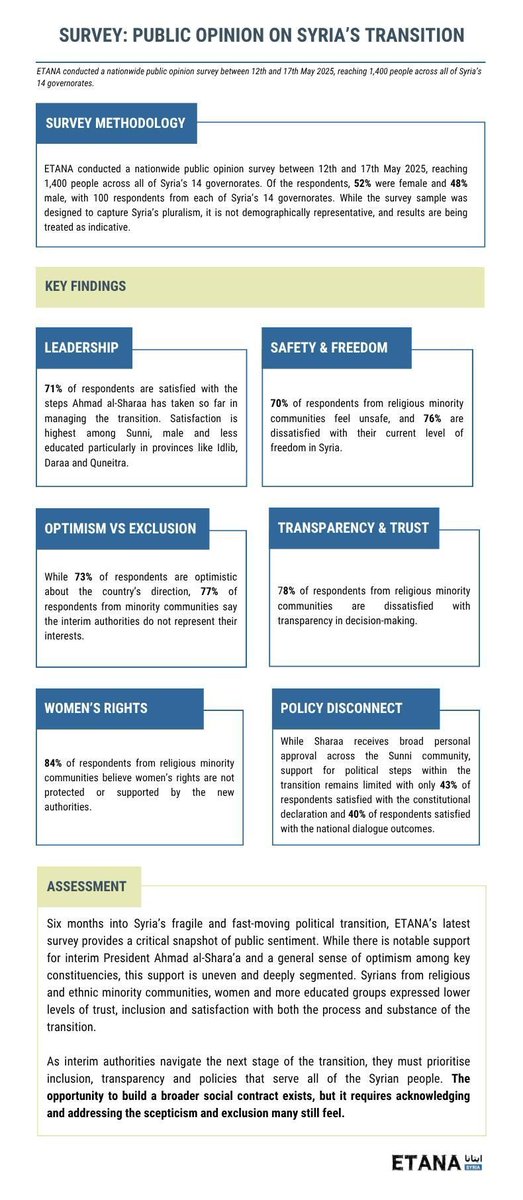
Researcher | Writer | Cat wrangler
Research director @SynapsNetwork. Learning about water, agriculture, human mobility
How to get URL link on X (Twitter) App



 I hesitate to project my voice into this day that belongs to Syrians. But, as I process my own astonishment, I’ll allow myself a few words on fear, relief, and hope.
I hesitate to project my voice into this day that belongs to Syrians. But, as I process my own astonishment, I’ll allow myself a few words on fear, relief, and hope.